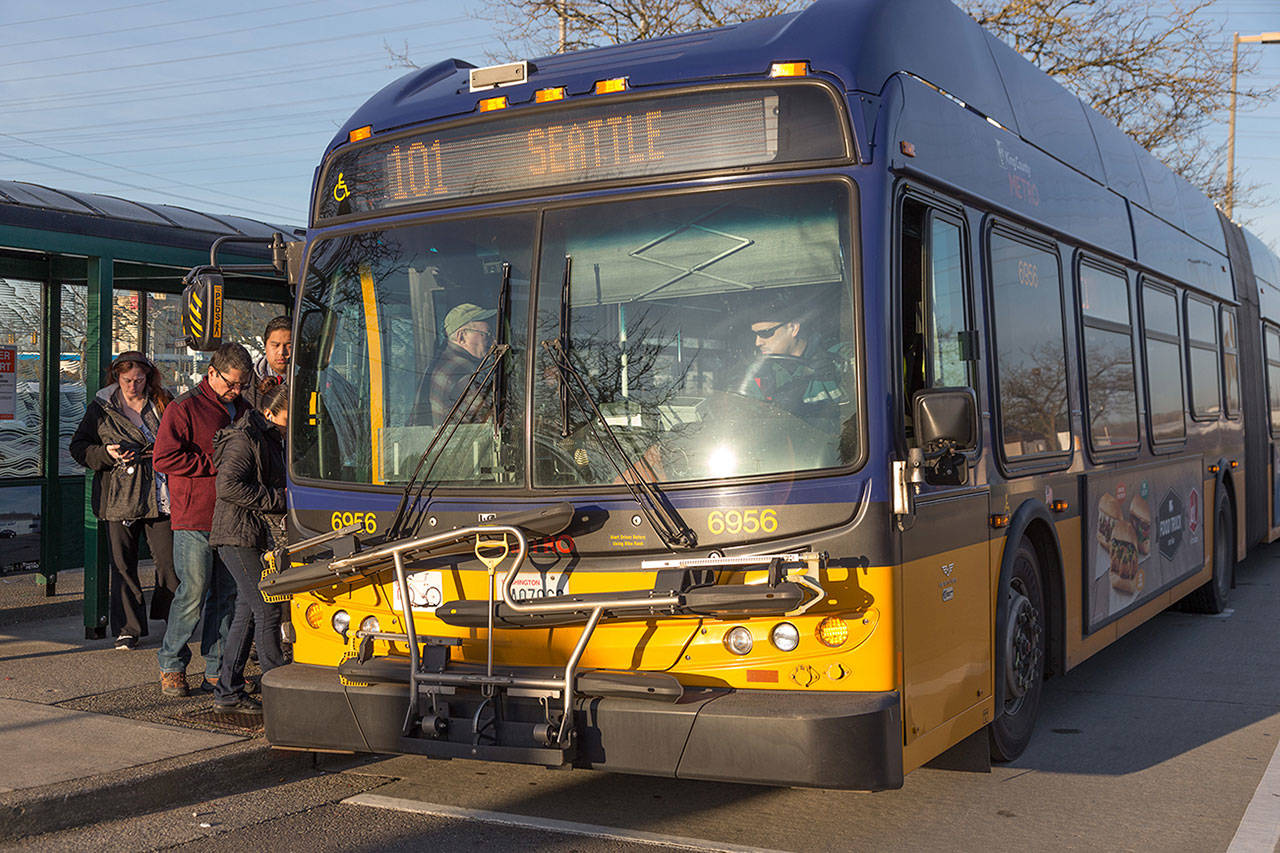Metro’s new fare of $2.75 aims to make riding transit more convenient and avoid confusion over fare payment that leads to delays in boarding.
A single fare for adult riders also lowers the potential for fare disputes, which will help improve safety.
Metro’s fares for youth, seniors and disabled riders, and those enrolled in ORCA LIFT will not change. More information can be found on Metro’s fares page.
“A simple $2.75 flat fare makes Metro service easier to use and more accessible for hundreds of thousands of riders who depend on us every day,” Metro’s General Manager Rob Gannon said in a press release. “Just have your fare payment ready, either by ORCA card, cash or mobile ticket – no more having to think about which zone or whether you’re riding peak or off-peak.”
Metro adopted a simple fare after receiving more than 11,000 responses to two public surveys, including one in which 80 percent expressed support for a flat fare. Metro previously had one of the nation’s most complex fare structures, with one zone for the City of Seattle and another for all areas outside of the city, as well as extra charges during the morning and evening commute. Metro’s simple fare also aligns more closely with other regional transit agencies, which do not have surcharges during peak hours.
About 65 percent of Metro boardings will see no change or pay 50 cents less under the new structure. Fares for off-peak travel will increase by 25 cents – affecting about 35 percent of Metro boardings.
At the beginning of 2018, Metro increased funding for Human Services Tickets for riders with lower-income or no income. Metro also is working with ORCA agency partners to reduce the replacement card fee for ORCA LIFT customers from $5 to $3 and eliminate the $3 initial card fee for seniors and people with disabilities. Metro continues to evaluate ways to make fares easier to understand and pay.



